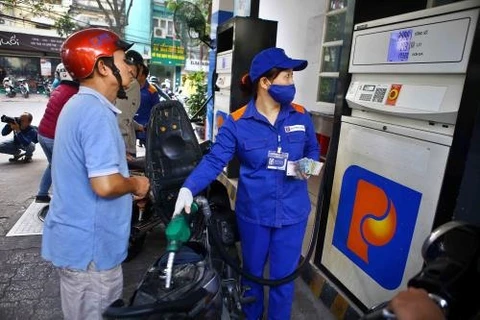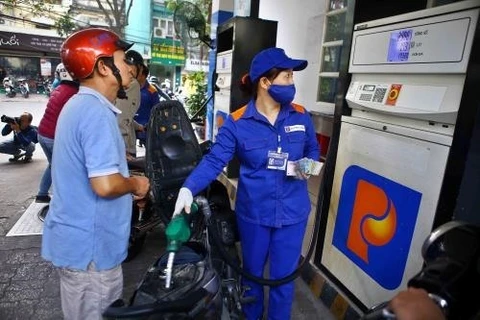Hanoi (VNA)
– The revenue from taxes that is meant to discourage the production and consumption of products hazardous to the environment is said to have yet to make up for the losses they cause.
The taxes that aim to discourage the production and consumption of products harmful to the environment are believed to have not matched the reality. The revenue from them is also said to have yet to make up for the losses caused by such production and consumption.
This issue was pointed out in a report on the use of tax policy tools to orient the economy towards green growth and sustainable development in Vietnam. The report, compiled by the Central Institute for Economic Management, was unveiled on March 11.
Amendments to tax policy needed
Nguyen Manh Hai, head of the research group of the Central Institute for Economic Management, noted that Vietnam has had a policy on environmental protection taxes on such items as petrol, oil, lubricants, plastic bags, herbicide, and coal.
The revenue from those taxes accounted for just 0.31 percent of the country’s gross domestic product (GDP) in 2014. It was higher than in Malaysia (0.24 percent of the GDP) and the Philippines (0.21 percent of the GDP) but much lower than in India (0.95 percent of the GDP), China (1.33 percent of the GDP), Japan (1.48 percent of the GDP), and the Republic of Korea (2.54 percent of the GDP).
To curb negative impact on the environment, Vietnam has also regulated that cars with less than 24 seats and motorbikes with a cylinder capacity exceeding 250 cubic centimetres are subject to special consumption tax. For cars with less than 24 seats, the bigger their cylinder capacity is, the higher tax rate on them is imposed.
Additionally, the country has also levied environmental protection fees on mineral exploitation, wastewater and solid waste.
However, Hai said, the tax policy that is intended to discourage the production and consumption of products hazardous to the environment has yet to match the reality.
According to him, to encourage green production and consumption and sustainable growth, it is necessary to set the special consumption tax rate on bio-fuel at 50 percent of that on mineral fuels.
Besides, it is necessary to increase the environmental protection tax and expand the scope of this tax to cover all products hazardous to the environment such as chemical fertilisers and exhaust fumes.
The preferential corporate income tax policy also needs to be perfected in terms of both tax rates and tax periods to selectively attract investment to sectors that apply high and environmentally friendly technologies.
Policy needs to match reality in Vietnam
Dang Thi Thu Hoai, Secretary of the Prime Minister’s economic advisory group, warned that the hike of tax rates may affect production costs and competitiveness of enterprises.
She also expressed her concern that petrol and oil are the items used by almost all people, including the poor, so higher taxes could influence the distribution of income.
“In developed countries, they have good economic conditions and completed social welfare systems, so they are able to apply tax policies more easily. We learn experience from the world but also need to take into account the reality in Vietnam,” Hoai said.
Nguyen Thi Tue Anh, Deputy Director of the Central Institute for Economic Management, said taxes are only one tool in green growth and sustainable development.
She wondered if the use of only tax policy will prove effective, or any other policies should be combined with it.
Anh believed that other policies like green credit need to be issued to connect with the tax policy./.
























